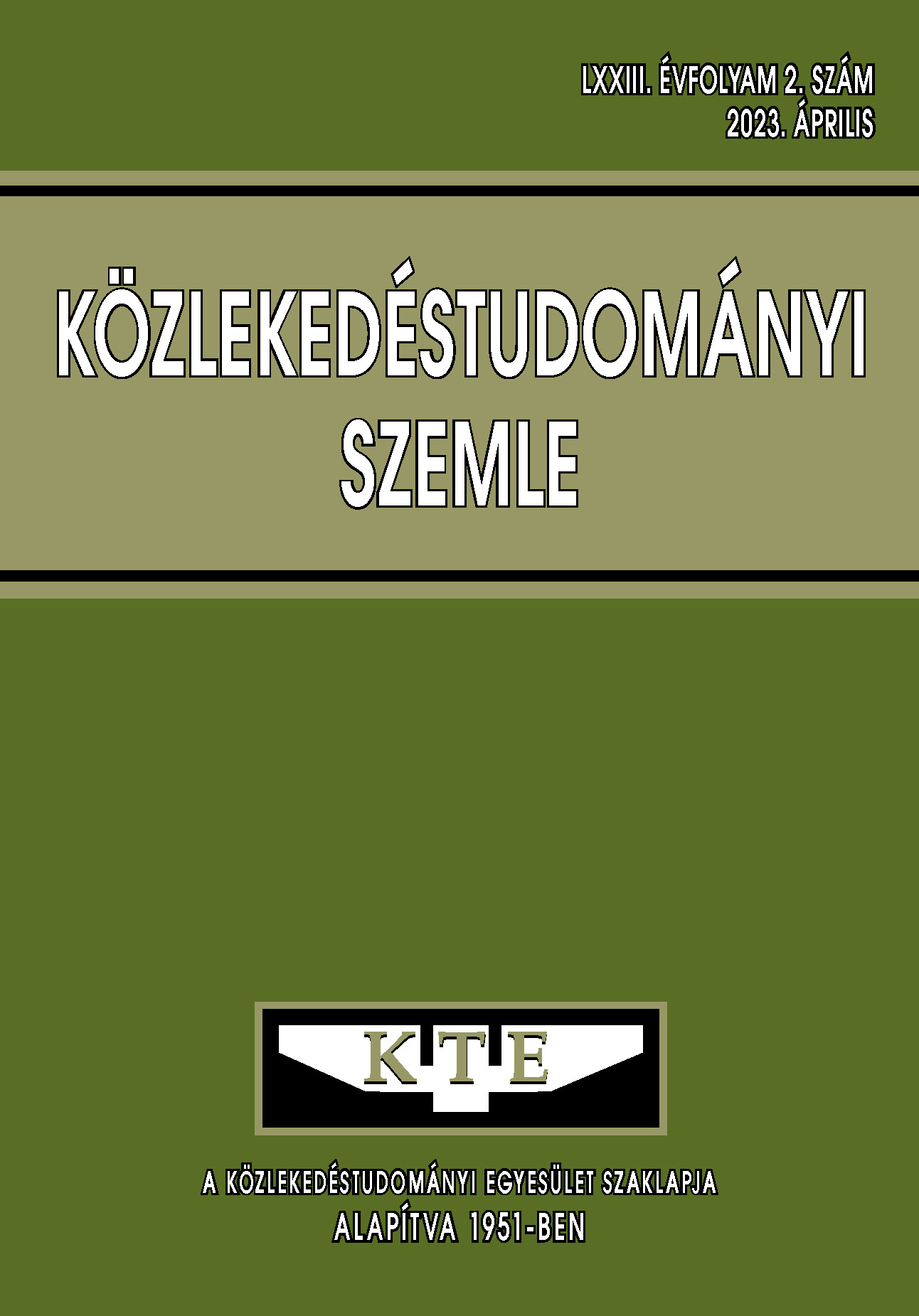Competition or cooperation in mobility management?
Abstract
The continuing evolution of our mobility needs is one of the challenges of our time. We have the most modern forms of the basic technical elements of transport (track - vehicle - environment), but we do not always manage them effectively. Even in the case of public transport vehicles, local authorities, operators and civil society organisations can apply for funding from a variety of sources for a variety of purposes, and these funding instruments, which are mostly isolated services, are often synergistic rather than parallel, and are cancelling each other out in terms of their objectives and results. Can an urban transport organisation based on a mobility ecosystem emerge in today's Hungarian context? This is the
question we are trying to answer through an analysis of current mobility needs, which could form the basis for urban settlement and infrastructure development.
References
Fleischer Tamás: A mobilitási szolgáltatások fenntarthatóságikérdései: társadalmi hatások, tér- és időgazdálkodás, A Magyar Tudomány Ünnepe, 2018, DOI: https://doi.org/jrtm
Európai Bizottság: Hatékony és környezetbarát MOBILITÁS, A VÁROSI MOBILITÁSI új uniós kerete (2021. december 14.), Creative Commons Attribution 4.0 International licenc, DOI: https://doi.org/jsbr
A MÁV-VOLÁN-CSOPORT FENNTARTHATÓSÁGI STRATÉGIAI CÉLKITŰZÉSEI: A MÁV-Volán-csoport hozzájárulása és vállalásai az ENSZ fenntarthatósági céljainak teljesítéséhez
Fleischer Tamás: Csillapított forgalom, kulturált közterület, élhető település, https://ellensuly.hu/csillapitott-forgalomkulturalt-kozterulet-elheto-telepules/ (2022. 05. 13.)
Articles published electronically are open access (OJS), freely available online and can be downloaded. Authors of articles are not charged any publication or publishing costs (APC). Users have the right to read, download, copy, print, and search the articles, or share the full text with a link.
Authors must declare that their submission has not been previously published in another journal, that financial support has been acknowledged, and that the list of references is complete and accurate, including specification of URLs and DOIs (if available). When submitting a draft article, each author approves the submitted version. Authors guarantee that the article is their original work. Authors are required to participate in the peer review process, follow the advice of reviewers, meet the prescribed deadlines, and, if any, withdraw the submission or correct errors.
All submitted articles are subject to peer review, where the editors request an independent evaluation from at least one expert, ensuring that the reviewer(s) have no conflicts of interest with the authors. The final decision is made by the Editor-in-Chief, who takes into account the evaluations and the suggestions of the editors. The editors and reviewers treat the submission confidentially.
The publisher and editors are committed to maintaining high ethical standards and to preventing publications that involve research misconduct. They follow the COPE guidelines on such ethical issues.
The authors retain copyright and grant the journal the right of first publication under the Creative Commons License (https://creativecommons.org/licenses/by-nc-nd/4.0), which allows others to share the work, while acknowledging the authorship of the work and the first publication in the journal.
The journal archives all published articles, and the journal's owner, the Hungarian Society of Transportation Sciences, will continue to operate the database even if the journal ceases to be published.















